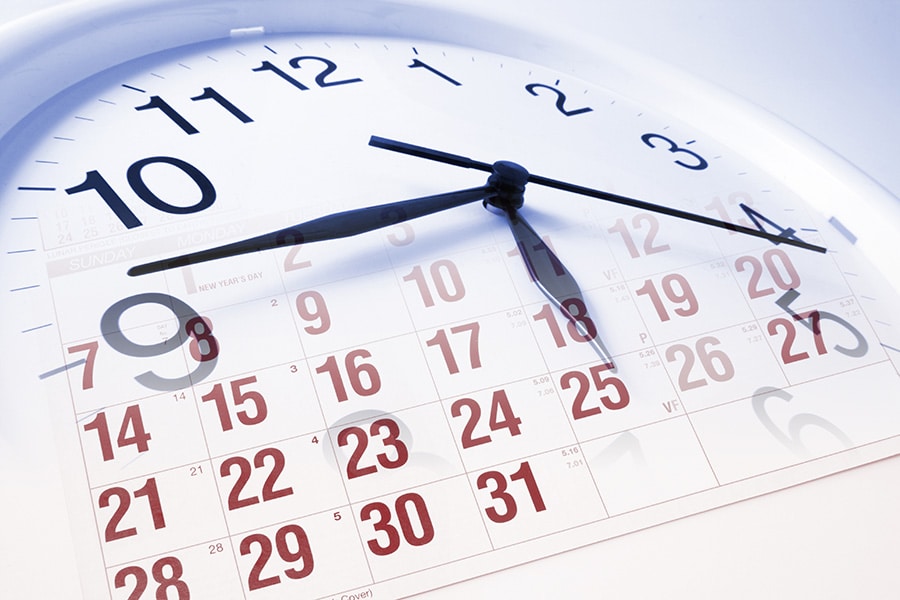Going through probate can be a complicated and lengthy process. Usually, it takes several months to a year to fully move through probate. However, some factors may delay probate even longer.
Read on to understand everything you need to know about what probate is, how it works and how long does it take to probate a will.
What is Probate?
Probate is the legal process of settling an estate for a deceased person. It involves settling debts, tax implications, and authenticating the will. Probate is necessary to finalize and validate any and all decisions that need to be made after someone dies.
How Does Probate Work?
When someone dies, there are many legal questions that need to be answered. Probate is the court in which these matters are settled.
It begins when an initial probate hearing is scheduled. If there is a will, the executor will present the document to a probate court for authentication. All beneficiaries of the estate must be notified in advance of this hearing.
After the hearing is completed, the designated executor is responsible for notifying all of the deceased’s creditors. All of the deceased’s outstanding debts will need to be paid before any inheritance can be paid out.
During this time, the executor is also responsible for maintaining all assets, completing accounting for the estate, and paying taxes.
After all creditors have been paid and the legal steps have been completed, the executor can distribute the assets. The will should outline who are beneficiaries of the estate and how much is to be paid to each beneficiary. Once this is done, probate can be closed.
How Long Does It Take To Probate a Will?
The length of the probate process depends on several factors. In most cases, probate will last less than a year. However, there are some complications that can make it take longer.
If some assets are difficult to distribute, such as real estate, the process can be delayed. Probate will also take longer if someone contests the will.
Why Does it Take So Long to Probate a Will?
Ensuring that handling a deceased’s affairs is done legally is a multi-step process. It is very important that this is handled according to the law. However, this can make the process long and arduous.
There are many documents and actionable steps that need to be taken during probate. The executor must acquire bank statements, tax returns, and other relevant documents before the process can move forward. It can sometimes be difficult to acquire this information on behalf of a deceased person.
There is also a significant amount of paperwork that must be completed for the probate court. Acquiring legal representation throughout this process can help move probate along faster.
While there are some ways that probate can be delayed, there are also some factors that can speed up probate. For smaller estates, typically less than $50,000, probate tends to be shorter. Probate can also be faster when there are fewer unusual assets involved.
Who Should Probate a Will?
Probate is initially opened by the will’s executor, or the person left in charge of fulfilling the will. If there is no will, anyone who wishes to serve as the executor can seek to open probate.
Do All Wills Need To Go Through Probate?
There are some assets that do not need to go through probate. If the deceased owned any assets jointly, or with another individual, the joint owners will take possession of the account. Assets held in trust also do not need to go through probate.
Any other assets that the deceased owned on their own will need to go through the probate process.
What Can Make Probate Last Longer?
The probate process can be delayed by several circumstances. Here are a few common examples of situations that can make probate take longer.
Multiple Beneficiaries
If the executor has difficulty contacting the beneficiaries probate will be delayed. There can also be complications if there are many beneficiaries. Locating paperwork and documentation for each of these individuals will take time. Communication problems and delays may also arise from multiple beneficiaries.
Contesting a Will
Any beneficiary has a right to contest a will. To do so successfully, the beneficiary must prove that the deceased person was coerced into signing the will or was not mentally competent when the will was created. Contesting a will creates a significant delay in the probate process. It may extend court proceedings by several months.
There is No Will
Probate will also take longer when there is no will. In this case, the court will need to determine who stands to inherit any remaining assets. In cases where there is no will, the court will determine who should inherit the deceased’s estate.
The court will also appoint someone to be the executor of the estate. If there are multiple petitioners to serve as the executor, the court will choose who to appoint.
Complicated or Unusual Assets
One of the most common reasons probate court is delayed is because the estate has assets that are difficult to distribute. It can take time for the executor to appraise and sell some elements of the estate. This can include artwork, real estate, or other unusual assets.
Final Thoughts
The probate process can be long and involve several complicated legal steps. If you are an executor, you are legally responsible for ensuring that probate is handled properly. You could be liable for any errors you make during the process.
To ensure that probate is handled smoothly, consider contacting a probate attorney to help.
Have questions or concerns about navigating the probate process? Give us a call at 800-874-3528 to schedule your free consultation.
